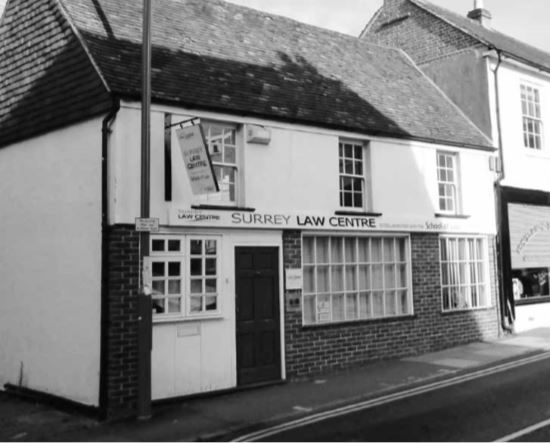Legal aid has hit the headlines again recently, with journalists often jumping on the “profiteering fat cat lawyers” bandwagon.
This is far from the reality in community care, education, housing, mental health and public law matters. The advice sector in these areas has survived only because of the willingness of legal aid lawyers to go above and beyond the call of duty, effectively donating thousands of hours of labour to prop up a failing system.
Law firms, law centres and some charities hold Legal Aid Agency contracts to provide publicly funded advice and representation regarding decisions made by public bodies such as the NHS or a local authority. A person experiencing a care package cut or problem may need advice about a decision or action taken or a failure to respond, and may need legal representation.
Community care problems
Regarding community care, legal aid funding is designed to pay for advice and representation where there has been a failure to assess needs, an inadequate needs assessment or care plan, a care charging problem, a review-related issue such as a cut to services, an unsuitable placement and so on.
It also covers problems with section 117 mental health aftercare funding, NHS continuing healthcare funding and services for looked-after and disabled children. If issues cannot be resolved through correspondence, judicial review proceedings in the administrative court may be required.
If there is a dispute about whether someone has capacity to consent to decisions about their care and support (particularly in relation to deprivation of liberty) or whether an existing or proposed package is in a person’s best interests, court of protection proceedings may be necessary.
If you cannot afford to pay for legal services, you need to find an organisation with a legal aid contract that can make an application for legal help or legal aid funding. Depending on the urgency of the problem and the type of work needed, different processes are involved.
To qualify for either on the basis of funding, you must pass a means test. The basic rules are that you must:
● Be on an income-related “passporting” benefit or have a gross income of less than £2,657 per month
● Have disposable income of less than £733 per month (after allowances)
● Hold savings under £8,000; if your savings exceed this, you are not even entitled to preliminary advice.
If your savings are in the £3,000-£8,000, range, it is likely you will have to pay a contribution towards certain types of legal work, although not for legal help. These contributions do not need to be paid up front and can be spread out.
Your home counts towards the valuation of your savings. This stops many people from qualifying, as only the first £100,000 of the equity and a £100,000 mortgage are ignored against the valuation. Some people can access non meanstested legal aid. This is available where the dispute concerns section 21a proceedings, which are challenges to Deprivation of Liberty Safeguards authorisations – on any footing. However, the court of protection does not have the powers of the administrative court with respect to declaring care packages to be unlawful.
There are three types of legal aid and these are best thought of as stages.
Stage 1. Legal help
The legal aid provider completes a form with the person and collects evidence of their financial circumstances for the means test.
The criteria for whether a provider should take on the case are vague. For legal help, they are simply that:
● A person has an issue within the scope of the relevant legal aid contract and
● It is appropriate, having thought about the circumstances of the issues, to provide early legal advice.

An important point is that this includes advice to establish if a case is not worth pursuing.
If practicable, the legal aid practitioner can try to negotiate a better outcome with the public body or compose a complaint. If the public body has breached any of its statutory duties, the practitioner can write a pre-action protocol letter. This sets out the person’s position and what the public body must do to resolve the breach. The public body has 14 days to respond unless the matter is urgent and requires immediate action.
If a public body does not respond by the deadline or sends a response that does not resolve the breach, the practitioner will need to consider whether there is “merit” in making an application for judicial review. Legal help does not cover preparation for such proceedings.
Stage 2. Investigative representation
This is for when investigative work is needed to determine the prospects of success in bringing judicial review proceedings.
An example is where there seems to have been a breach of a statutory duty or a public law issue, but the chance of a judge agreeing with this cannot be known until certain work has been carried out. The Legal Aid Agency deems investigative representation appropriate if six hours of casework are likely to be required, or if advice from a barrister or an independent social worker assessment or other professional input is required because facts are disputed.
Casework can include further client appointments, taking witness statements, correspondence or researching a complex legal point. The legal aid provider will need to make this application on a system called CCMS, completing both a means and a merits assessment with similar financial scrutiny as at the legal help stage.
The merits test is more complex and the practitioner must explain why the case meets the criteria for investigative representation. The Legal Aid Agency usually takes around 12 days to decide unless the legal advice provider flags it as an urgent application. If the agency grants the funding, then the provider will be given a certificate to proceed.
Stage 3. Full representation
This is for people who are actively contemplating judicial review proceedings – the issue has not been resolved and all avenues for sorting it out have been exhausted.
It must involve clear statutory breaches or public law grounds for challenge. A competent appraisal that there is a 50% or greater prospect of success is required; the 50% success possibility criterion is not necessary if the threat is to the person’s life, liberty or home. This funding is also claimed via the CCMS system. The merits assessment is for deciding whether a case can be dealt with through this route if it is proportionate to the circumstances.
The provider can apply on an urgent or emergency basis, which is decided within 48 hours, while non-urgent applications usually take around 12 days. Once funding is granted, a certificate outlining the type of work that can be carried out is issued.
This is usually limited to obtaining advice from counsel and preparatory work for proceedings, such as putting together a court bundle, gathering witness statements and other evidence and a statement of facts and grounds setting out one’s case.
Once this has been filed with the court, a judge will then consider whether to grant permission for a hearing – all judicial reviews require permission as a first hurdle. If a permission hearing is necessary rather than a purely paper application, additional funding needs to be requested to cover the costs of any extra work and representation in court.
When legal aid funding at the investigative or full representation stage is granted, there is a rule that if one recovers “property” (including damages), there is a statutory charge; this means that the money is recouped to cover the costs that the Legal Aid Agency has paid.
A waiver can be requested at the time of the application in public interest cases. Alternatively, you can wait until the end of the case when costs are decided and request the waiver then, but it may be more difficult to secure at this time.
Where to start
As complicated as all this might seem, if you need advice about a community care matter, the best thing to do is to approach legal aid providers who have a contract and explain what the issue is about, why you think there is a problem and what you want to achieve.
Do you just need advice or do you need someone to investigate and put the case forward for you? The provider should identify what type of funding is best suited to your circumstances. Some people have complicated finances and providers will check whether you are eligible.
It can be hard to find a solicitor with capacity to do community care cases as there are not many of them. Contact a local firm first but, if none are available, you can use any firm elsewhere.
A few organisations provide assistance to get cases started for those who need it, ensuring access to justice until a law firm can be found to issue proceedings. CASCAIDr cannot take your matter all the way through to court and we do not do legal aid advice at all, but we do offer up to three hours for free and some further free advice for some clients. We are working on ways to ensure we can pass people on to good legal aid firms that have the capacity to take work on.
● To check whether you are eligible for legal aid and what you will need as proof see: https://www.gov.uk/check-legal-aid
● You can find a legal aid solicitor via https://find-legal-advice.justice.gov.uk
Belinda Schwehr is chief executive of legal advice charity CASCAIDr (www.CASCAIDr. org.uk) and owner of Care and Health Law, a consultancy. She has been a barrister, solicitor advocate, presenter, writer and university law lecturer; Kaylee Lindsey is a senior caseworker specialising in community care and public law, and a CASCAIDr consultant. She represents both adults and children in disputes with local authorities and the NHS, including issuing judicial review proceedings





